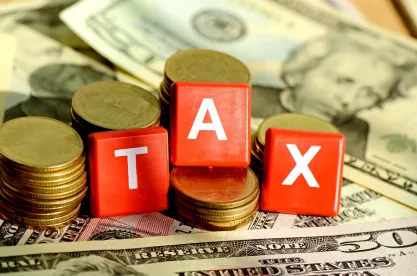Little-noticed changes in the 2015 PATH Act accelerated form filing deadlines and waived retroactive corrections for small-dollar errors, effective 2017.
The Protecting Americans from Tax Hikes (PATH) Act of 2015 was signed into law on December 18, 2015, as part of the Consolidated Appropriations Act, 2016 (P.L. 114-113). Two sections of the PATH Act, sections 201 and 202, are particularly important to entities that file payee statements or information returns.
Section 201: Accelerated Filing Dates
Section 201 of the PATH Act amended Internal Revenue Code (Code) section 6071 by inserting a new subsection (c) that provides that the due date for copies of Forms W-2 and W-3 (that report employee compensation) and Form 1099-MISC (that report nonemployee compensation in Box 7) that are filed with either the Social Security Administration (SSA) or the Internal Revenue Service (IRS) have been accelerated by one month to January 31.[1] This provision is effective for such returns and statements that relate to calendar years beginning on January 1, 2016. Form 1099-MISC is the only form in the 1099 series affected by section 201 because it is the only form on which nonemployee compensation is reported. Further, it is only Form 1099-MISC that reports nonemployee compensation in Box 7 that must be filed with the IRS by the accelerated due date.
Section 201 does not change the due date (generally January 31[2]) of the payee copy of those forms in the W-2 or 1099 series. However, by virtue of this section of the PATH Act, Forms W-2 and W-3 (that report employee compensation) and Form 1099-MISC (that reports nonemployee compensation) now also must be filed with the government by no later than January 31.
Current Law
Prior to the PATH Act’s enactment, Forms W-2 and 1099 were required to be filed on or before the last day of February if filing using a paper form and on or before the last day of March if filing electronically.[3] Form W-3 is only required to be filed when transmitting a paper copy of Form W-2 and therefore would also be due on the last day of February, if not filing electronically.[4]
For information returns due before December 31, 2016, filers are allowed an automatic extension to file their Forms W-2, W-3, or 1099 with the IRS or SSA.[5] The extension applies only to information returns filed with the IRS or SSA, not the payee copy of these returns. Filers can take advantage of this automatic 30-day extension by filing a Form 8809, “Application for Extension of Time to File Information Returns,” before the due date. Filers are also allowed an additional nonautomatic 30-day extension if they requested the extension before the automatic extension expires.[6]
Nevertheless, if these forms are not filed by the due date, including any extensions, penalties can be imposed.
Section 201 PATH Act Updates
As stated above, the PATH Act changes the due date for Form W-2, Form W-3, and certain Form 1099-MISC to January 31. This is the deadline regardless of whether the return or statement is filed using a paper form or electronically. As previously mentioned, this change only affects those Forms 1099 that report nonemployee compensation, and the filing deadline for other forms in the 1099 series remains unchanged.
Almost four months prior to the PATH Act’s enactment, the IRS promulgated temporary regulations that change the time extensions to file beginning with returns or statements required to be filed with the IRS or SSA after December 31, 2016.[7] Under these temporary regulations, there is no longer an automatic extension for forms in the W-2 series, except for Form W-2G.[8] Instead, a filer may request only one nonautomatic extension.[9] The process for getting an extension for forms in the 1099 series remains the same. Again, failure to file these forms by the due date, including any extensions, could result in penalties.
This change under section 201 is significant. First, it increases the pressure and strain on payroll departments that are busy preparing the payee copy of the Forms W-2 and 1099-MISC. Now, they must simultaneously prepare the SSA and IRS copies for filing, which will likely include spending extra time navigating the required electronic filing tools. Second, this change makes correcting the Forms W-2 or 1099-MISC more difficult. Previously, companies had time to find (and possibly to apply simplified correction procedures to) any errors in the payee copies of the forms as part of the process of filing the government copies of the forms. With the accelerated timeline, companies have less time to discover these errors unless they received an extension.
Section 202: New Safe Harbor for De Minimis Errors
Section 202 of the PATH Act amended section 6721(c) by creating a safe harbor for de minimis errors on information returns and payee statements. Specifically, section 202 establishes a safe harbor from penalties for the failure to file correct information returns and for failure to furnish correct payee statements by providing that if the error is $100 or less ($25 or less in the case of errors involving tax withholding), the issuer of the information return is not required to file a corrected return, and no penalty is imposed. However, a recipient of such a return (e.g., an employee who receives a Form W-2, a contractor who receives a Form 1099-MISC, or any other recipient of a Form 1099) can elect to have a corrected return issued to him or her and filed. This provision is effective for information returns and statements required to be filed after December 31, 2016.
Current Law
Under the current law, when an information return[10] is filed, a payee statement[11] is furnished, or other reporting requirements are incorrectly complied with,[12] the person who files the information return or furnishes the payee statement must correct the error and file a new information return or furnish a new payee statement. These corrected returns and payee statements are often subject to late filing penalties for failure to comply with the information reporting requirements.
With respect to penalties related to returns or payee statements due before January 1, 2016, if a person files or corrects a previously filed information return or payee statement after the prescribed filing date, the penalties are as follows:[13]
|
Tier |
Late Filing Period |
Penalty |
Maximum Penalty |
|
First-tier penalty |
Filed on or before the date that is 30 days after the prescribed filing date |
$30 per return/statement |
$250,000 per calendar year |
|
Second-tier penalty |
Filed after the date that is 30 days after the prescribed filing date but on or before August 1 |
$60 per return/statement |
$500,000 per calendar year |
|
Third-tier penalty |
After August 1 |
$100 per return/statement |
$1.5 million per calendar year |
In cases in which the failure to file an information return or to furnish the correct payee statement is due to intentional disregard, the minimum penalty for each failure is $250, with no calendar-year limit.
With respect to penalties related to returns or statements due after December 31, 2015, the Trade Preferences Extension Act of 2015 increased the penalties for information returns or payee statements to the following amounts:[14]
|
Tier |
Late Filing Period |
Penalty |
Maximum Penalty |
|
First-tier penalty |
Filed on or before the date that is 30 days after the prescribed filing date |
$50 per return/statement |
$500,000 per calendar year |
|
Second-tier penalty |
Filed after the date that is 30 days after the prescribed filing date but on or before August 1 |
$100 per return/statement |
$1.5 million per calendar year |
|
Third-tier penalty |
After August 1 |
$250 per return/statement |
$3 million per calendar year |
For failures or misstatements due to intentional disregard, the penalty per return or statement increased to $500, with no calendar year limit. For updates both before and after the Trade Preferences Extension Act, there is no safe harbor for de minimis errors of an amount reported on the information return or payee statement. No distinction is made between small businesses and other persons required to report. There is no penalty imposed if the failure is due to reasonable cause.[15]
Section 202 PATH Act Updates
The provision creates a safe harbor from penalties for failure to file a correct information return and penalties for failure to furnish a correct payee statement in circumstances in which the information return or payee statement is otherwise correctly filed but includes a de minimis error of the amount required to be reported on such return or statement. Stated more simply, there is now a safe harbor from penalties when an otherwise correct information return is filed or payee statement is furnished, but the return or statement includes a small (de minimis) error in the amount required to be reported on the return or statement. A de minimis error of an amount on the information return or statement need not be corrected if the error for any single amount does not exceed $100. A lower threshold of $25 is established for errors with respect to the reporting of an amount of withholding or backup withholding.[16]
Note that the safe harbor applies to amounts reported on information returns or payee statements, but does not include incorrect information reported on these documents (e.g., incorrect Tax Identification Numbers). Further, if any person receiving payee statements requests a corrected statement, the penalty for failure to file a correct information return and the penalty for failure to furnish a correct payee statement would continue to apply in the case of a de minimis error. Therefore, a person receiving a payee statement may elect out of the safe harbor provision on behalf of the statement issuer.
This safe harbor applies to any employer or other taxpayer who issues payee statements (i.e., Forms W-2, 1042-S, and 1099) or files information returns (i.e., any taxpayer engaged in a trade or business, including a corporation, partnership, individual, estate, and trust who makes reportable transactions during the calendar year).
This safe harbor applies to information returns required to be filed and payee statements required to be furnished after December 31, 2016. Therefore, information returns and payee statements filed for the 2015 tax year and prior years are excluded from this de minimis safe harbor and are subject to the late filing penalties listed above. There is no explanation for why this safe harbor is not applied with retroactive effect.
[1] This provision was enacted largely without any further explanation as to the reasoning for the change.
[2] The exceptions are Forms 1099-B, 1099-S, and 1099-MISC that report payments in Box 8 or 14, which are due in mid-February.
[3] Treas. Reg. § 1.6041-2(a)(3).
[4] Id.
[5] Treas. Reg. § 1.6081-8(a).
[6] Treas. Reg. § 1.6081-8(d)(2).
[7] Treas. Reg. § 1.6081-8T.
[8] Treas. Reg. § 1.6081-8T(b).
[9] Id.
[10] Section 6721.
[11] Section 6722.
[12] Section 6723.
[13] Lower maximum levels for this failure to file correct information return or payee statement penalty apply to small businesses. Small businesses are defined as firms having average annual gross receipts for the most recent three taxable years that do not exceed $5 million. The maximum penalties for small businesses are $75,000 (instead of $250,000) if the failures are corrected on or before 30 days after the prescribed filing date, $200,000 (instead of $500,000) if the failures are corrected on or before August 1, and $500,000 (instead of $1,500,000) if the failures are not corrected on or before August 1.
[14] The lower maximum levels applicable to small businesses also were increased. The maximum penalties for small businesses are $175,000 if the failures are corrected on or before 30 days after the prescribed filing date, $500,000 if the failures are corrected on or before August 1, and $1 million if the failures are not corrected on or before August 1.
[15] Section 6724.
[16] The provision also requires broker reporting to be consistent with amounts reported on uncorrected returns that are eligible for the safe harbor.




 />i
/>i

